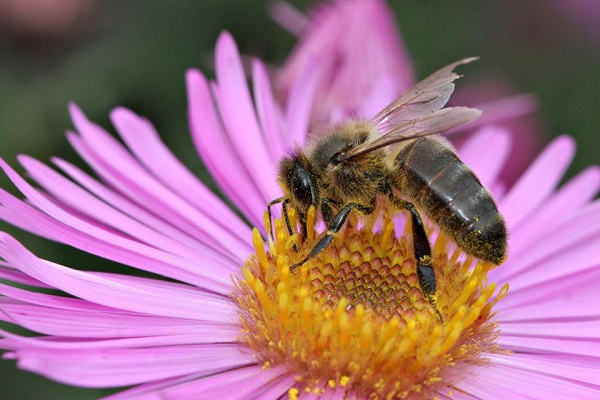Last year Oracle entered a partnership with the World Bee Project (WBP) to leverage cloud technologies to better understand the decline in global bee populations. The initial goal was to devise innovative strategies to help farmers manage bee and pollinator habitats.
“Today’s bee population is declining at a very fast rate, which is being caused by human intervention and the use of fertilizers in crops. This is harmful for many reasons. For example, about 77% of all the food we eat depends on pollination. That equates to roughly $577 billion globally of food produced each year. Additionally, 1.4 billion farmers livelihoods rely on pollinators,” Jay Chugh, Oracle’s senior director of products, told me.
To understand why the global bee population has been declining over time, Oracle partnered with the World Bee Project to launch the “World Bee Project Hive Network.” The Hive Network remotely collects data through interconnected beehives using IoT sensors. The data is then fed into Oracle’s Cloud, which uses analytics tools including artificial intelligence (AI) and data visualization, to provide researchers with new insights into the relationships between bees and their environments.
The Hive Network has secured funding for a total of thirty locations and is live across Edinburgh, the U.K. (Reading, London and Chelsea Physic Garden) and Israel. The goal is to interconnect 500 million farmers in total through IoT sensors, and most recently, with blockchain technology.
Blockchain For Sustainable Honey
Oracle, which is also a Forbes’ 50 Enterprise Blockchain company, announced this month that it is leveraging its blockchain platform to ensure that honey is being produced from sustainable sources. Oracle will use its blockchain framework in combination with the Hive Network to develop a “BeeMark” label to show that honey is being produced sustainably.
“The ‘BeeMark’ label is a monitor that we are using to capture sound, humidity, temperature, the weight of beehives and more. Once this data is captured it will be placed on the blockchain to show that honey hasn’t been changed or corrupted. Although still in its pilot phase, the idea is for consumers to go into a retailer and scan a QR code from the BeeMark label to validate that honey came from a particular source,” John Abel, vice president of cloud and innovation at Oracle, told me.
Like IBM’s Food Trust Network, Oracle’s blockchain platform is powered by Hyperledger Fabric. Yet while the IBM Food Trust consists of a number of large retailers like Walmart and Dole, Oracle is currently only partnering with the World Bee Project, a non-profit organization.
“We are different from IBM Food Trust in a number of ways. For instance, right now we are only working with the World Bee Project to trace sustainable honey. However, in the future, we plan to expand this. We are speaking with a customer now to determine how to better understand the behavior of cows, which is important for organic farming. In both instances we are using IoT sensors combined with blockchain, which makes this project unique. One of the things we are working on is relying on interconnected sensors as a mechanism to feed data into a blockchain network,” Abel explained.
Through the World Bee Project Hive Network, data is collected from the interconnected hives and is then captured, stored and shared across Oracle’s blockchain network. While Oracle doesn’t own the data, the blockchain network creates an open and transparent framework for all players to engage on.
“The World Bee Project posts the data that is collected and researchers from the University of Reading in London, another partner in this project, help inform and implement global actions that contribute to improving biodiversity,” said Abel.
Yet as data is collected from a growing number of hives, Abel points out that a major concern is key management distribution, as each participant in a blockchain network holds a private key used to digitally sign off on transactions.
“With the Bee Mark, the goal is to have a large scalability platform via blockchain and key management will be a critical component, as we aim to provide a platform that has no barrier to adoption,” said Abel.
Another difficulty will be encouraging hundreds of million of farmers to join the World Bee Project Hive Network. While increased transparency in agricultural supply chains is a major benefit for both consumers and farmers, a high level of trust between all participants on a blockchain network is required. Data sharing and privacy rights are a major concern here, putting additional emphasis on know your customer (KYC) requirements.
Despite these challenges, Oracle remains hopeful that their ongoing partnership with the World Bee Project will change the world in a big way.
“The key information and the private data will always stay with the farmer, which is why blockchain is such a suitable technology for this project. The validation of the block is the purpose of the blockchain,” said Abel. “The goal moving forward is to work with scientists who can help accelerate all of this research. Right now we are tracking sustainable honey, but this can be applied to any type of food source. Ultimately, this project aims to impact human life while showing the importance of pollination for agriculture and food development.”
Source: Original





